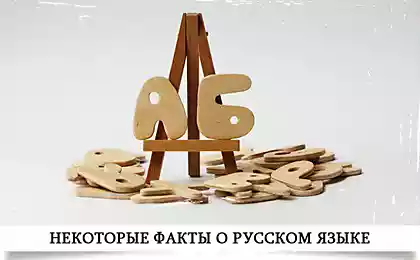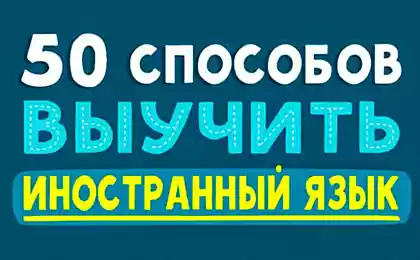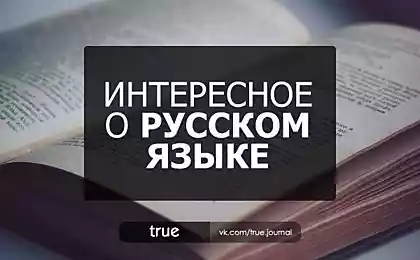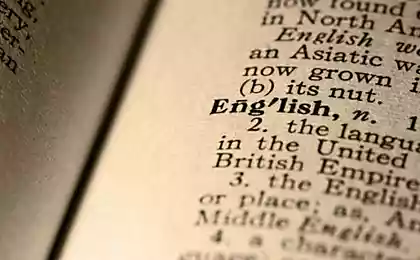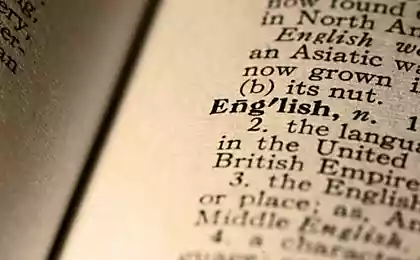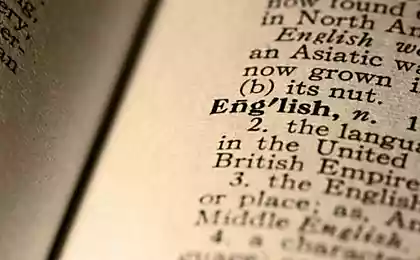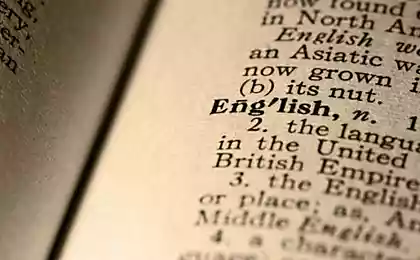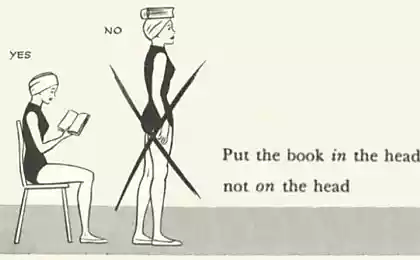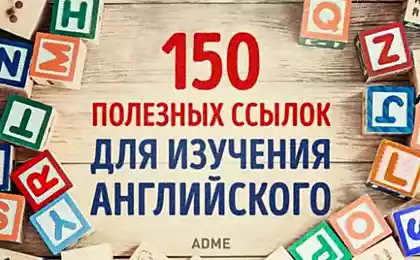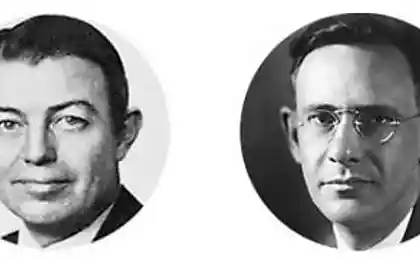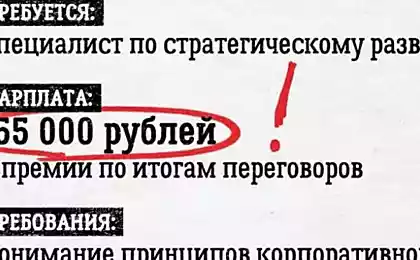914
12 features that are only in Russian language
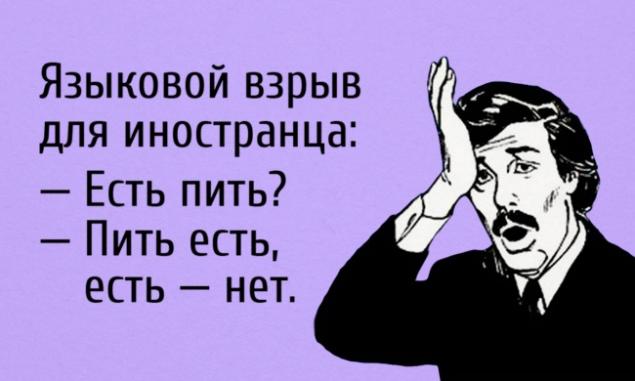
Russian - the language with a unique alphabet, pronunciation and tough reputation as one of the most difficult to learn. But we do not think about it, because for us it is native.
Website gathered some facts that will help look into the Russian language in a new way.
2 letters of the word, in which you can make 8 errors, - soup em>. Russian Empress Catherine the Great, while still a German princess Sophie wrote a simple Russian word soup em> like this: «schtschi», which is 8 characters, all of which are wrong! Russian alphabet is unique . Some characters in it are the same as in Latin, but others look the same but sound different. And two letters - b em> and s em> - do not have their own sound.
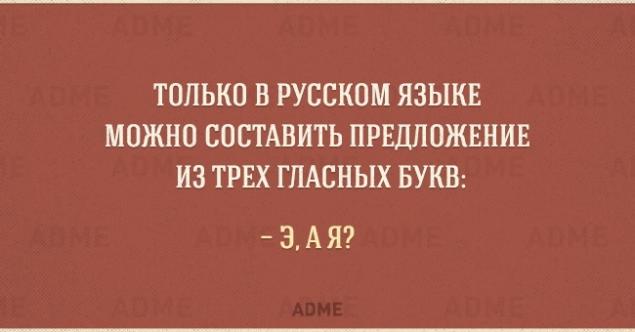
The letter ie em> can be two different sounds [ye] and [yo]. That is for the [yo] is a single letter, g em>, but these two points are almost never write, so it turns out not g em>, and ie em> . You can get confused.
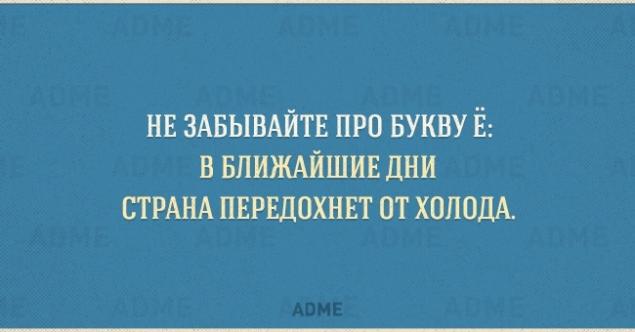
In the modern Russian language, the word friend em> is not used, so that native speakers have remained without a special word of appeal to another person or group of people. Sometimes you can hear ladies em> and Gentlemen em>, but it sounds a bit pretentious and unnatural. Can be used and handling man em>, Woman em>, but it is somewhat rude. Do not use the verb be em> in the present tense. But in the future and the past - is used. The order of words in the Russian language is free, but it does not mean that you can put the word you want. From the order of the words may be radically dependent meaning of the sentence. For example, "I'm going home" means "I'm going home" (though, of course, a lot depends on the tone), but "I'm going home" means that "I'm going home is, and not much else there." And "I'm coming home" - "That I'm going home, not you and not someone else. All others remain here and work! ". So the order of words in the Russian language depends on what you want to say.
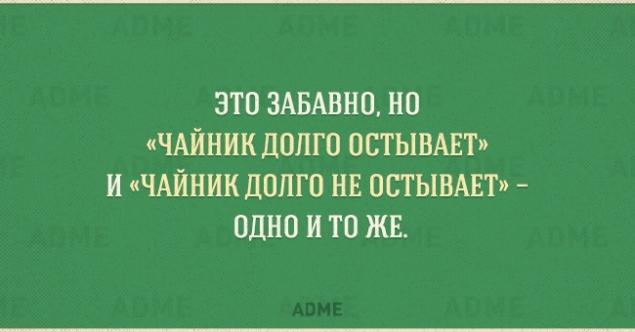
To make an offer to the general question, I do nothing, just intonation. "You're home" - this statement, "You're at home?" - A question. We numerals one em> and two em> is the genus, and the rest - No: one boy em>, one girl em>, two girls em>, two boys em>, but three boys < / em> / Girls em>. In the numeral one em> has the plural - some em>. The past tense of verbs is a kind, and in the present and the future - no: he played em>, she played em>, he plays em>, it playing em>. At Russian nouns have animate! This means that some animate nouns are considered "more alive" than inanimate. For example, in the Russian language dead em> is considered to be more alive than corpse em>. (Remember the curriculum: blame anyone em> - a dead man, but I blame that em> - the corpse). The most difficult Russian patter: "There was Sasha highway and sucked drying "," In the yard - the grass, on the grass - firewood not cut firewood on the grass court ».
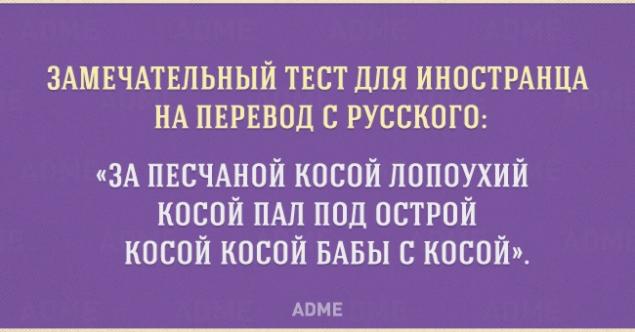
According to the materials: openlanguage
12 intricacies of Russian
17 postcards about the intricacies of Russian
20 fun facts about the Russian language
via www.adme.ru/svoboda-kultura/zanimatelnyj-russkij-519605/
Components for F / A tract in the range of the company "UkrMashServis"
What to do in 20 years, then to go through life in mountain

